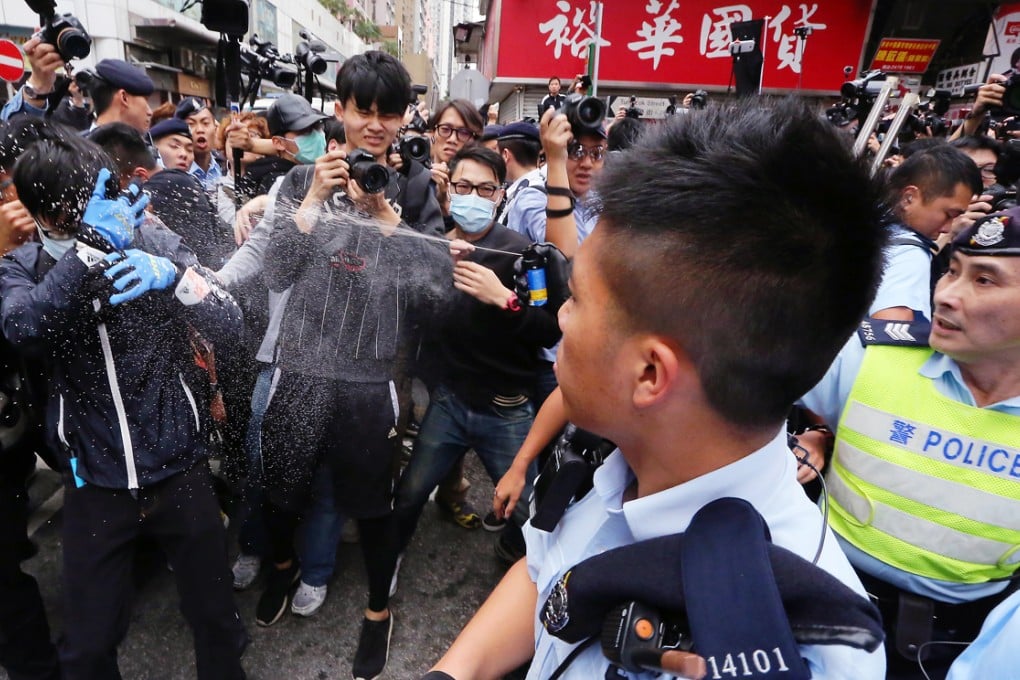Update | Hong Kong protest sees violence, pepper spray and arrests, but triads stay away
Police use pepper spray amid chaotic scenes as protest against traders continues into the night

Chaotic scenes hit the narrow streets of Yuen Long yesterday as clashes marred the latest protest against mainland traders - but police fears of a violent counter-protest involving triads proved unfounded.
Police used pepper spray to break up clashes as the 200 or so protesters and opponents exchanged foul-mouthed insults as they marched from Long Ping MTR station to Sau Fu Street, where a cluster of shops serve mainland buyers.
Watch: Hong Kong police use pepper spray after scuffles break out at anti-parallel trading protest
The march was the third in a month targeting so-called parallel traders, who buy goods in Hong Kong to sell across the border. Demonstrations in Tuen Mun and Sha Tin last month turned ugly, and police sources told the South China Morning Post last week that they had warned rural strongmen against calling in triad henchmen to confront marchers.
Disputes yesterday occasionally escalated, and police moved in with pepper spray. Several reporters were also sprayed, while one photographer received a wound to his chest.